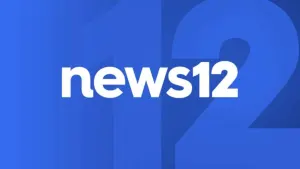More Stories
Hudson Valley commuters could see their commute costs increase by several hundred dollars each month under the latest proposed congestion pricing toll model.
Street performer Erick Sewer said that because of the MTA's upcoming tolls on all vehicles traveling south of 60th Street, he is not going to perform in Manhattan anymore.
"I'm not going to go to [Manhattan] . I'm going to go to the Bronx," he said laughing as he packed up his keyboard outside a shopping plaza in Chester.
Others like Roni Clawson of Orange County told News 12 it is not worth it to pay more to go somewhere where they do not feel safe.
"It does give you hesitation about visiting the city," Clawson said. "You're overpaying and you're walking into a lot of -- you don't know what anymore."
At this week's final MTA Traffic Mobility Board meeting, the board presented four scenarios for congestion pricing when it takes effect next spring.
Each scenario offers discounts for lower-income commuters and price breaks of between $4 and $7 for drivers entering lower Manhattan through the Lincoln of Holland Tunnels.
The price for standard vehicles to enter lower Manhattan could be as high as $23, MTA board members said. Tolls for box trucks would be double the rate for cars, and prices for large tractor-trailers would be triple, under all the scenarios.
Hudson Valley lawmakers were disappointed to learn none of the scenarios included any price break for their residents who cross the George Washington Bridge and drive below 60th Street.
"We're getting hit with an unfair tax," state Sen. Bill Weber said Tuesday in a Zoom interview with News 12.
The point of congestion pricing is to reduce traffic and raise money for public transit improvements. Weber does not trust that public transit in the Hudson Valley will benefit from that revenue. He said drivers crossing the George Washington Bridge will be "taxed" the most of all, and receive the least service improvements.
Drivers who pay both tolls could end up paying as much as $38 each day.
Weber said, currently, public transit in his community is inadequate, unlike in New Jersey or Long Island, where commuters can more easily switch from driving to train rides without losing much time.
"They can take the train right into the city, rather easily," Weber said, "Whereas the people in Rockland don't have that same opportunity. We'll continue to fight every day to get what we think we deserve."
The Traffic Mobility Board will issue its final recommendations for a congestion pricing model later this month.
Then an independent panel will review the plan before it is finalized.
More from News 12
0:26

Hundreds of toys delivered to pediatric patients for Three Kings Day
2:05

Temperatures are on the other side of average; more rain is expected to finish the week
1:04

Mount Vernon fire victims may qualify for federal disaster loans
0:37

Pope Leo XIV appoints clergyman with Hudson Valley ties as next Rochester archbishop

Hidden genetic heart risk identified in 30-year study of healthy women
1:44
